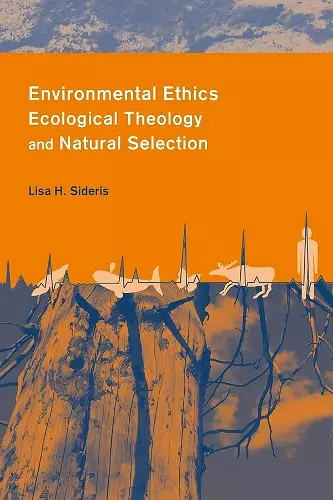Environmental Ethics, Ecological Theology, and Natural Selection
Suffering and Responsibility
Format:Hardback
Publisher:Columbia University Press
Published:15th Aug '03
Currently unavailable, and unfortunately no date known when it will be back

Lisa Sideris proposes a new way of thinking about the natural world, an environmental ethic that incorporates the ideas of natural selection and values the processes rather than the products of nature. Such an approach encourages us to take a minimally interventionist approach to nature. Only when the competitive realities of evolution are faced squarely, Sideris argues, can we generate practical environmental principles to deal with such issues as species extinction and the relationship between suffering and sentience.
Nature, this work reminds us, is a rough and predatory place. Lisa Sideris proposes a new way of thinking about the natural world, an environmental ethic that incorporates the ideas of natural selection and values the processes rather than the products of nature.In the last few decades, religious and secular thinkers have tackled the world's escalating environmental crisis by attempting to develop an ecological ethic that is both scientifically accurate and free of human-centered preconceptions. This groundbreaking study shows that many of these environmental ethicists continue to model their positions on romantic, pre-Darwinian concepts that disregard the predatory and cruelly competitive realities of the natural world. Examining the work of such influential thinkers as James Gustafson, Sallie McFague, Rosemary Radford Ruether, John Cobb, Peter Singer, and Holmes Rolston, Sideris proposes a more realistic ethic that combines evolutionary theory with theological insight, advocates a minimally interventionist stance toward nature, and values the processes over the products of the natural world.
This book offers a detailed, thoughtful exploration of alternative scientific and theological conceptions of the environment. -- Amy K. Wolfe Environment Readers of this journal should pay special attention to a book such as this. It is as clear a demonstration as exists of the import of scientific theorizing and the fusion between the culture of the sciences and that of the humanities. -- Michael P. Nelson, University of Idaho Environmental Conservation This critique ought to generate debate and responses...for the questions it asks are crucial to our common project. -- Anna L. Peterson Environmental Ethics There is much to commend in this admirably clear and readable book. -- Michael S. Northcot Ecotheology
ISBN: 9780231126601
Dimensions: unknown
Weight: unknown
328 pages